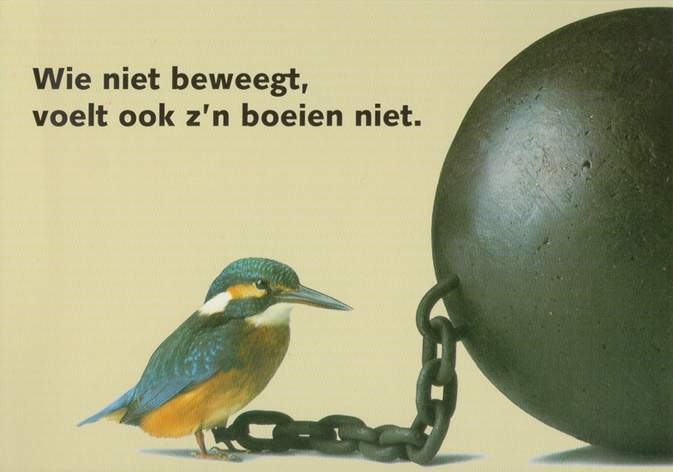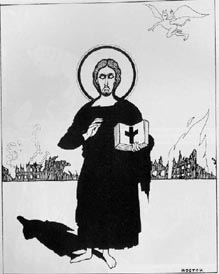 The voting in Bosnia and Herzegovina was totally expected. HDZ is the only
political party from Croatia that is constantly (and more) present in BH
territory. It is questionable how the election defeat will effect their
activity in Bosnia and Herzegovina and how the change of Croat
government will effect further policy toward Bosnia.
The voting in Bosnia and Herzegovina was totally expected. HDZ is the only
political party from Croatia that is constantly (and more) present in BH
territory. It is questionable how the election defeat will effect their
activity in Bosnia and Herzegovina and how the change of Croat
government will effect further policy toward Bosnia.
Crying HDZ spokesman, Zoran Tomic, said that the defeat of HDZ was
unexpected. But he added that HDZ BiH is extremely satisfied with a fact
that HDZ got around 90 percent of votes in BiH.
Other political parties in BiH also reacted.
Same old SDA. “Alija Izetbegovic’s vision of weak Serbia and democratic
Croatia as elements that will help the implementation of the Dayton
agreement in BiH is coming true”, said Mirza Hajric, Izetbegovic’s
adviser. He did not say if the vision contains SDA and similar parties in the
future, parties that have most of the time obstructed the implementation of the
Dayton agreement.
President of SDP BiH, Zlatko Lagumdzija expressed his expectations that
after the changes that happened in Croatia there will be many changes in
Bosnia in the up-coming elections, with a silent hope that the scenario
from Croatia will repeat itself in Bosnian case.
Biljana Plavsic, the president of Serbian national union, is also
satisfied. She claims that the Croatian results “give hope” that the politics as we
know it will disappear from that country, the politics she finds extreme
and with many “ustasha components”. Hoping that one of the priorities for
the new Croat government will be to solve Serb matter in Croatia and also
the return of refugees and expelled Serbs to the country.
Obviously, most of the Bosnian officials consider the HDZ
defeat/opposition victory positive. But are these officials ready for changes in Bosnian
society? Because, statements about extremity of Croatian policy are
unacceptable while the critics (equally extreme) are still in power in
Bosnia and Herzegovina.
Voting for Croat presidential elections in BiH took place in the Croat
Embassy and other 13 locations. This time only 15% of 320 000 of voters
responded. Same as in the parliament elections, majority of votes were
in favour of Mate Granic, presidential candidate with HDZ background –
unlike Croatia itself, where majority of votes was in favour of Mesic or
Budisa. It is interesting that the diaspora list was the only election unit where
Granic won the majority. Weak response of Croat voters in BiH is
justified with bad weather conditions by some and by others with a fact that there
is no one to vote for any more. In that sense, it is questionable if
Bosnian Croats will respond to the second round of Croat presidential elections
– they have only “communists” to vote for. Regardless of the fact that HDZ
has suggested to their voters to vote for Budisa. Mood of Croats in this
territory can be seen through a message that appeared at the entrance to
so-called Herzeg-Bosnia and it was documented by Split Feral Tribune.
Revolted and imaginative people in Herzegovina added “Comrades” and two
five-pointed stars to the parole which states welcome to Herzeg-Bosnia.
This is a clear allusion to anger because of “communist” victory in Croatia.
It is questionable if the Croat voters in BiH will follow party orders in
this case too?
This could be the last time that Croat elections took place in Bosnia and
Herzegovina (in this way). The High representative of the OHR mission in
BiH, Wolfgang Petritsch, said that by year 2003. Croatia and Bosnia and
Herzegovina must solve a double citizenship problem. If not, the
citizens will be forced to choose only one of the two citizenship. It is certain
that the point of this is to reduce impact that the Croat government had in
Bosnian politics so far. Statement made by Jacques Klein, chief of the
UN mission in BiH, in Slobodna Dalmacija, proves that the rest of the
International Community also thinks in this way. The statement says that
“Croat government should clearly say to the Croats in Bosnia: ‘You are
Bosnian citizens, we support you, you are a constitutive nation, we will
support you to perform your rights and will help you in returning the
refugees’”. And their relations should stop there. According to Klein,
Croats in BiH were often mislead by promises and national leaders that
were using them. Now things should change.
Times of collective exams are coming.
Judging from everything.
 BiH was on the 11th election list – list for diaspora which contains
around 350 000 registered voters, out of which 320 000 in Bosnia and
Herzegovina. According to the Sarajevo Croat embassy data, out of total number of registered voters in BiH, 25 – 30% of Bosnian Croats voted for the House of Representatives. Arrivals to the polling stations were organised, often by HDZ (and sometimes by the catholic church). This is not surprising if we
keep in mind the long year connection between, now former, Croat top and
Bosnian Croats. And, also, keeping in mind the nature of that
connection.
BiH was on the 11th election list – list for diaspora which contains
around 350 000 registered voters, out of which 320 000 in Bosnia and
Herzegovina. According to the Sarajevo Croat embassy data, out of total number of registered voters in BiH, 25 – 30% of Bosnian Croats voted for the House of Representatives. Arrivals to the polling stations were organised, often by HDZ (and sometimes by the catholic church). This is not surprising if we
keep in mind the long year connection between, now former, Croat top and
Bosnian Croats. And, also, keeping in mind the nature of that
connection.  Politics in January 2000
Politics in January 2000
 The voting in Bosnia and Herzegovina was totally expected. HDZ is the only
political party from Croatia that is constantly (and more) present in BH
territory. It is questionable how the election defeat will effect their
activity in Bosnia and Herzegovina and how the change of Croat
government will effect further policy toward Bosnia.
The voting in Bosnia and Herzegovina was totally expected. HDZ is the only
political party from Croatia that is constantly (and more) present in BH
territory. It is questionable how the election defeat will effect their
activity in Bosnia and Herzegovina and how the change of Croat
government will effect further policy toward Bosnia.